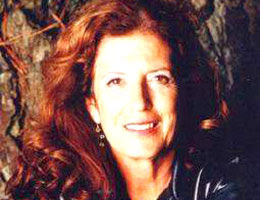
Four years after her death, a campaign sparked by Body Shop founder Anita Roddick has had surprising success in getting governments to agree to toughen up child protection laws, the campaign's manager Christopher Davis said in an interview.
The "Stop Sex Trafficking of Children" petition claims to have nudged 14 governments into changing their laws since it was launched three years ago and, with 7 million signatures so far, has high hopes of converting at least six more countries including Thailand to its cause.
Although the campaign is aimed primarily at halting sex trafficking, its impact has been wider, prodding governments to consider signing up to treaties that aim to protect children worldwide.
As a result of the campaign, five countries have signed the Optional Protocol to the Convention on the Rights of the Child, which Davis described as a "gold standard" for child protection.
"It means you commit to a certain level of child protection so your local laws are to a high standard. And you commit every two years to tell the U.N. what you're doing. So it's a big deal. Rather than hiding away, you have to come back and talk about it."
The Body Shop, which was bought by L'Oreal in 2006, had its first big campaigning success in the late 1990s, when it pressured the British government to ban animal testing.
It still relies on shoppers to sign up for its campaigns as they browse shelves of soap and shampoo, and Davis said 95% of people backing the current campaign signed the petition in a shop, while 50,000 store staff have been trained to discuss the issue.
"We say: 'We don't want your money, we want your voice'. To be able to turn people's voices into a wave of change is really cool," said Davis. "Governments are listening."
Some 1.2 million children and young people are trafficked every year for sexual exploitation, many in Southeast Asia, former Soviet republics and Africa, the campaign says. Davis said the aim was to protect teenagers drawn into prostitution just as much as small children targeted by pedophiles.
"For us this campaign has always been about protecting children regardless of whether they are 6 or 16. I don't think you can differentiate. It's all interconnected.
The idea is to reduce both supply and demand -- trying to prevent children falling into sex trafficking while also raising awareness among men who -- perhaps during a wild bachelor holiday -- might unwittingly be paying for underage sex.
"You may be having sex with children. You need to be smart about it, because it's wrong. You could get in one hell of a lot of trouble. It's our responsibility if we decide to pay for sex to know what situation we're in," said Davis.
Attempts to rescue children from sex traffickers sometimes mean people going in "literally all guns blazing," Davis said. This campaign hopes to achieve far more in a very different way, using individuals to improve the lot of all children growing up in the countries that have tightened their laws.
"That's a message that will go out to our customers: there is hope, you are powerful as an individual," said Davis. "You can be part of the solution. And the solution is change for our kids and our kids' kids."
No comments:
Post a Comment